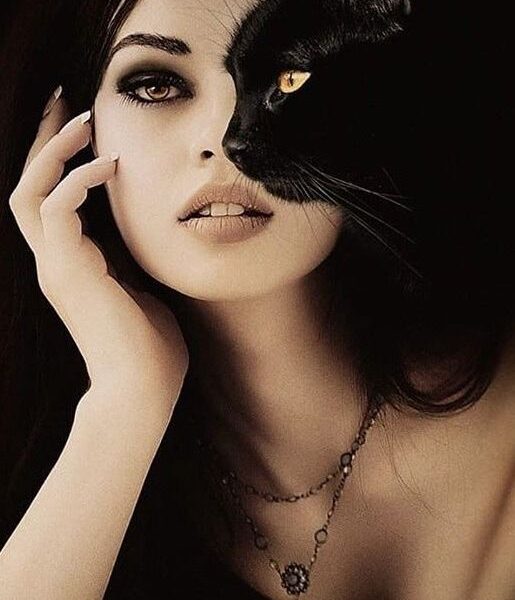
8 Pluto Meanings That Scare the Crap Out of You
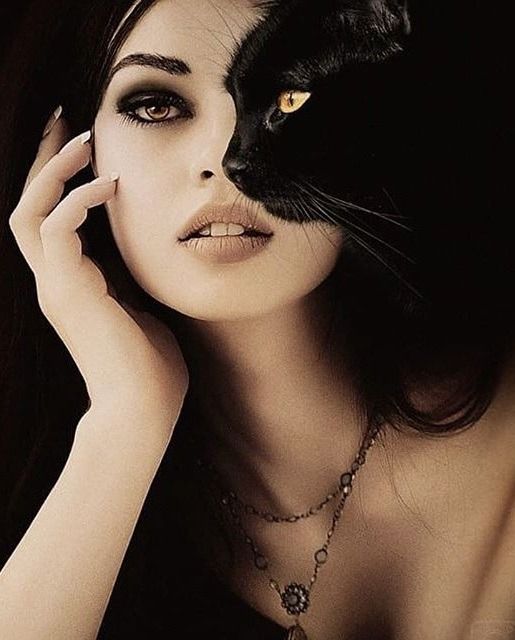 1. Pluto, the planet of death and rebirth, wielding its scythe like some Grim Reaper, strutting through the zodiac with the swagger of someone who’s seen it all, torn it down, and rebuilt it from the ashes. Pluto’s energy is all about transformation, but not the soft and delicate kind. It’s more like being tossed into the furnace, set on fire, and emerging from the flames with a few bits of your soul still smoldering. You don’t come back the same, do you? No, you come back… well, let’s say “different.” Remember the film Pet Cemetery. We can’t resist, can we? The temptation to dig up the past, brush off the dirt, and hope that this time—this time—it will be different. Whether it’s a black cat or an ex-lover, we’re dabbling in forces we can’t fully control, thinking we can outwit the cosmic laws of closure, as if a bit of voodoo, nostalgia, or pure willpower can undo the irreversible. And oh, how we learn—inevitably—the hard way that what comes back isn’t what we buried. It’s got the stench of decay, the worms of resentment wriggling in its eyes. The love is still there, sure, but it’s twisted, mutated into something that barely resembles its former self.
1. Pluto, the planet of death and rebirth, wielding its scythe like some Grim Reaper, strutting through the zodiac with the swagger of someone who’s seen it all, torn it down, and rebuilt it from the ashes. Pluto’s energy is all about transformation, but not the soft and delicate kind. It’s more like being tossed into the furnace, set on fire, and emerging from the flames with a few bits of your soul still smoldering. You don’t come back the same, do you? No, you come back… well, let’s say “different.” Remember the film Pet Cemetery. We can’t resist, can we? The temptation to dig up the past, brush off the dirt, and hope that this time—this time—it will be different. Whether it’s a black cat or an ex-lover, we’re dabbling in forces we can’t fully control, thinking we can outwit the cosmic laws of closure, as if a bit of voodoo, nostalgia, or pure willpower can undo the irreversible. And oh, how we learn—inevitably—the hard way that what comes back isn’t what we buried. It’s got the stench of decay, the worms of resentment wriggling in its eyes. The love is still there, sure, but it’s twisted, mutated into something that barely resembles its former self.
See, Pluto doesn’t just rule over death and the underworld in some morbid, “let’s all wear black” sort of way. No, Pluto is about power—the raw, brutal kind that doesn’t care about our attachments. It’s the part of life that reminds us that endings need to happen, that life needs its cycles, and sometimes, letting go is the only way to move forward. But we humans, with all our emotional stickiness, we like to resurrect things, don’t we? Exes, old habits, toxic friendships—we want to give them another go, thinking we can bring them back shiny and new. But they rarely come back like that. They come back like half-zombies, still dragging their feet in the past, and often leaving us more wrecked than before. The truth is, Pluto’s power doesn’t just come from its ability to destroy; it comes from the knowledge that destruction is necessary for creation. So when we resurrect what’s meant to stay dead—whether it’s a relationship, an identity, or an old way of thinking—we’re basically inviting Pluto’s darker side to the table. And Pluto’s got no time for sentimentality; it’s all about forcing you to face the rot.
And then there’s that nasty little trick Pluto pulls—when it’s been mistreated or disrespected. Some people, those under the heavy sway of Pluto, can return from their own emotional deaths like ghosts of the underworld, dragging down anyone who dares come too close. They’ve gathered power from their pain, sure, but it’s more like the power of a dark storm than a gentle breeze. There’s rage, bitterness, and a deep desire to take everyone else down to the pit they just crawled out of. That’s why some Plutonic people turn into these ‘mean mojos.’ They’ve stared into the abyss, and the abyss, in classic form, stared right back at them. And now they’re dragging its shadows into every room they enter.
But Pluto also teaches us the art of surrender. Not to be confused with giving up, but the kind of surrender where we acknowledge that some things—whether it’s a relationship or a chapter of our lives—are best left to rest in peace. The resurrection that matters, the one Pluto truly champions, is the one that happens after we’ve let go, after we’ve allowed ourselves to be reduced to dust. It’s not the resuscitation of the old, but the birth of something entirely new. The worm-eaten thing can stay in the ground; what’s important is that we rise up, transformed.
So sometimes a comeback is glorious. Sometimes rising from the ashes is exactly what’s needed. But not everything needs to rise. Sometimes, in Pluto’s merciless wisdom, the dead must indeed stay dead. And when we accept that, when we stop trying to outwit the inevitable, that’s when we truly understand Pluto’s deepest lesson: nothing is ever really lost. It’s just transformed. Let the old love stay buried. Let the old self die. Pluto’s already preparing the soil for what’s next, and it’s always better than the rotting remains we cling to. Respect the expiration dates. They’re there for a reason.
 2. Psychoanalysis is the terrifying art of rummaging through the attic of your mind, shining a flashlight on all the cobwebbed corners where those long-forgotten memories have been quietly festering. There’s a reason Pluto rules this particular dark art—it’s the equivalent of picking at a scab you know is going to bleed, but can’t resist because somewhere deep down, you’ve convinced yourself that once it’s all healed, you’ll emerge stronger, shinier, and perhaps even pristine. But let’s be honest here—nobody really wants to be poked and prodded in the depths of their psyche. It’s like opening a cupboard in your soul and hoping the skeletons won’t clatter out, making a scene. Yet, psychoanalysis is all about facing that inevitable, spine-chilling moment when the skeletons not only fall out—they start having a conversation with you about why you’re afraid of commitment, or why you’ve been harboring a fear of clowns since age five. Uncomfortable? Oh, absolutely. But, in a weird way, it’s necessary. Because until you drag those monsters into the light, they have free rein over your thoughts, gnawing at your sanity like rats in the walls.
2. Psychoanalysis is the terrifying art of rummaging through the attic of your mind, shining a flashlight on all the cobwebbed corners where those long-forgotten memories have been quietly festering. There’s a reason Pluto rules this particular dark art—it’s the equivalent of picking at a scab you know is going to bleed, but can’t resist because somewhere deep down, you’ve convinced yourself that once it’s all healed, you’ll emerge stronger, shinier, and perhaps even pristine. But let’s be honest here—nobody really wants to be poked and prodded in the depths of their psyche. It’s like opening a cupboard in your soul and hoping the skeletons won’t clatter out, making a scene. Yet, psychoanalysis is all about facing that inevitable, spine-chilling moment when the skeletons not only fall out—they start having a conversation with you about why you’re afraid of commitment, or why you’ve been harboring a fear of clowns since age five. Uncomfortable? Oh, absolutely. But, in a weird way, it’s necessary. Because until you drag those monsters into the light, they have free rein over your thoughts, gnawing at your sanity like rats in the walls.
The thing about Pluto—and psychoanalysis, by extension—is that it doesn’t do surface-level. No quick-fix band-aids here. You can’t just dab at your issues and call it a day. Pluto demands a full excavation, a kind of psychological archeology, where you dig deep into the muck of your memories, unearthing not just the ancient ruins but all the emotional junk that’s gotten tangled up in them. It’s a bit like trudging through an emotional junkyard, sorting through old betrayals, childhood traumas, and that time in high school when someone laughed at your haircut. But that’s the price of admission, isn’t it? To heal, you’ve got to feel. And, of course, Pluto knows that nothing heals if it’s left festering beneath the surface.
It’s utterly terrifying having someone else poke around in your mental detritus. It’s like having a stranger go through your underwear drawer, but worse—because these are your deep-rooted fears, your insecurities, your darkest moments. And then, when they say, “Aha, this is why you’re afraid of intimacy,” it’s like they’ve ripped the mask off the villain in a Scooby-Doo episode. Only, the villain isn’t some guy in a mask—it’s you, in all your messy, flawed humanity. That kind of vulnerability is the stuff of nightmares. It’s no wonder you never want to revisit those scars, re-open those old wounds, because once you do, you can’t unknow what you now know. You’ve seen the raw truth, and sometimes, it’s uglier than you were prepared for.
But while psychoanalysis might feel like walking through a cemetery of your personal demons, it’s also the key to exorcising them. It’s that plunge into the underworld, where you confront the monsters, shake hands with your inner ghosts, and come out on the other side a bit lighter, a bit clearer, and perhaps a bit more you than before. Pluto’s power is transformative, but only if you’re willing to face the darkest parts of yourself head-on. It doesn’t promise comfort. It promises evolution.
And here’s the thing: just when you think you’ve cleared out all the emotional clutter, there’s always more. You’ll accumulate more junk, more wounds, more experiences that shape and scar you. And, eventually, you’ll find yourself back on the couch, recounting your life to some wise therapist, unraveling yet another layer of the psyche. It’s the eternal dance of Pluto—death, rebirth, and the continuous shedding of the old to make way for the new. You might feel pristine for a while, but life has a way of piling on new messes. That’s just part of the deal.
But, as chilling as it is to replay all the agony, there’s something undeniably freeing about it. Once you’ve dragged those fears out of the shadows, they lose some of their power. Like all things Pluto, it’s about facing the end so you can have a new beginning. You don’t want to go back to those scars, but sometimes, they demand to be acknowledged. And as spine-tingling as it is to wander through the graveyard of your soul, it’s also where you find your truest self, stripped down and raw, ready for resurrection.
So yeah, psychology is a bit like standing on the edge of an abyss, staring into your own darkness. But it’s only scary because it’s so damn powerful. And, when you’ve had your fill of darkness, when you’ve rummaged through the depths and faced your demons, you come out the other side, reborn. Because, in the end, that’s what Pluto does best—turns death into transformation. Keep strolling through that junkyard, but remember: you’re not alone in it, and there’s always light on the other side of the darkness.
3. 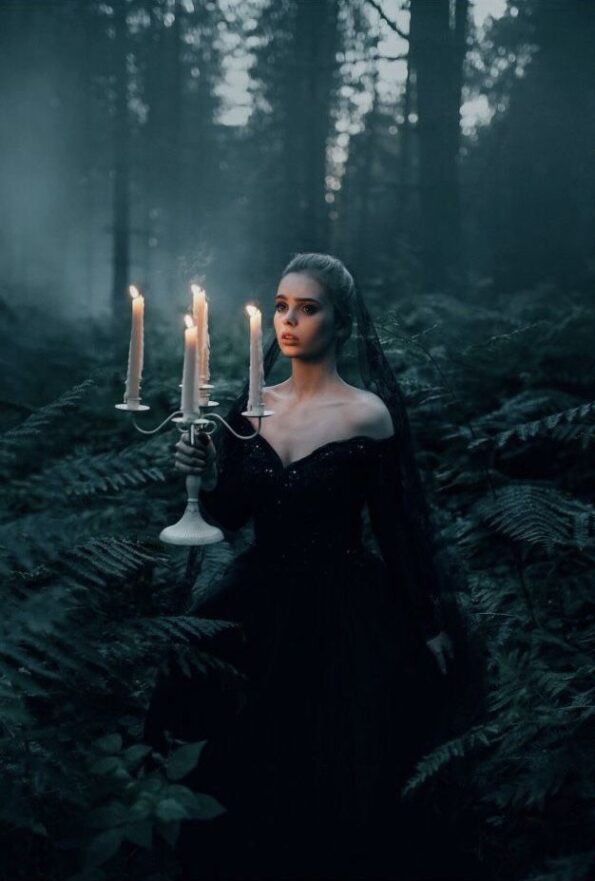 Pluto holds the keys to the front and back doors of existence. The deity that loves nothing more than to remind us that life is a one-way ticket—no returns, no do-overs, no “let’s try that again” moments. When Pluto closes the door, you can bang on it, cry at it, scratch at it all you want—but it’s locked, bolted, and sealed, probably with some ancient curse for good measure. And there’s something chilling about that, isn’t there? That finality. The way Pluto doesn’t allow us the luxury of endless chances, endless “what ifs.” The moment the door shuts, that’s it. We’re done. It’s the ultimate mic drop of the universe.
Pluto holds the keys to the front and back doors of existence. The deity that loves nothing more than to remind us that life is a one-way ticket—no returns, no do-overs, no “let’s try that again” moments. When Pluto closes the door, you can bang on it, cry at it, scratch at it all you want—but it’s locked, bolted, and sealed, probably with some ancient curse for good measure. And there’s something chilling about that, isn’t there? That finality. The way Pluto doesn’t allow us the luxury of endless chances, endless “what ifs.” The moment the door shuts, that’s it. We’re done. It’s the ultimate mic drop of the universe.
What’s so unnerving, of course, is that Pluto doesn’t just rule over the dramatic end of things, but also the beginning, that first gasp of life before we’ve had a chance to even understand what it all means. It’s that sense of being pulled along by a force bigger than yourself, knowing that you didn’t ask for this beginning, and you sure as hell won’t get a say in the ending. That’s where Pluto gets us, right in the gut. Because while we can negotiate with most of life, we cannot negotiate with Pluto. Death, endings, transformations—they come when they come, and there’s nothing we can do about it. Pluto is the master of that immutable law: it’s over when it’s over.
And yet, in a weird way, isn’t that where the true power of Pluto lies? Not just in its finality, but in the unflinching truth that there’s no going back. That door slams shut, not out of cruelty, but out of necessity. You can’t go through life constantly looking over your shoulder, hoping for a redo, wishing you could rewrite the script. That’s not how Pluto plays the game. It’s about making peace with the endings, accepting that some chapters have no epilogues, and that not everything can be resurrected like some reboot of your past.
There’s something both terrifying and liberating about that. On the one hand, we dread it—the idea that the end is out of our control, that it could come at any moment, whether we’re ready or not. But on the other hand, there’s a weird kind of peace in it. No do-overs, sure, but that means we get one shot. One glorious shot to live, to love, to mess up, to learn, to rise, and to fall. And isn’t that, in itself, kind of beautiful? To know that everything we do is etched into the fabric of the universe, permanent and irrefutable?
That’s the thing about Pluto, though—it doesn’t deal in soft landings. When it’s time for an ending, it’s not going to hold your hand and give you a pep talk. It’s going to slam the door in your face and leave you standing there, bewildered and probably a little bruised. And all the prophecy, fatalist doom, and “end-of-the-world” feeling that comes with it? That’s just Pluto’s way of saying, “Don’t waste your time pretending you can outrun the inevitable.” Because at the end of the day, we’re all on the same one-way train, headed towards some kind of transformation. Maybe it’s death, maybe it’s rebirth, maybe it’s the end of an era or the closing of a chapter, but it’s always coming, whether we like it or not.
And yet, for all its harshness, Pluto isn’t just about endings. No, it’s about beginnings, too. It’s the force that insists that for something new to rise, the old must fall. You can’t have spring without winter, you can’t be reborn without dying to some part of yourself. Pluto’s endings are brutal, yes, but they make space for something new, something raw and unformed, to take root. It’s the promise that after the door closes, another will open—but only if you’ve got the courage to face the end and walk through it.
So, what’s written is written. There’s no magic eraser, no cosmic Ctrl+Z. But maybe that’s the point. Maybe Pluto’s ultimate lesson is that we don’t need endless do-overs. We just need to make peace with the impermanence of it all, to accept that some doors will close forever, and that’s okay. It’s okay because the endings are as much a part of life as the beginnings. In fact, they’re what make life so precious. Knowing that we have limited time, limited chances, limited doors to walk through forces us to live with more intention, more fire, more heart. And when the door closes, when it’s truly over, we don’t get to undo it. But we do get to decide how we lived while it was still open.
 4. Pluto, the harbinger of all that is dark and unsettling, the one planet that seems to hold up a mirror to the part of ourselves we’d rather not face. It’s the equivalent of that eerie sensation when the hairs on the back of your neck stand up because you just know something is following you, something not quite seen but definitely felt. There’s something primal about it, isn’t there? That deep-rooted fear, the instinctive flight-or-fight response, triggered by the creeping shadow of the unknown. Pluto’s realm is a place where the light is dim, and all the things we’d rather keep hidden crawl out from under the bed to have a chat.
4. Pluto, the harbinger of all that is dark and unsettling, the one planet that seems to hold up a mirror to the part of ourselves we’d rather not face. It’s the equivalent of that eerie sensation when the hairs on the back of your neck stand up because you just know something is following you, something not quite seen but definitely felt. There’s something primal about it, isn’t there? That deep-rooted fear, the instinctive flight-or-fight response, triggered by the creeping shadow of the unknown. Pluto’s realm is a place where the light is dim, and all the things we’d rather keep hidden crawl out from under the bed to have a chat.
It’s terrifying to acknowledge that there are forces, both external and internal, that might seek to destroy us. Whether it’s the figure lurking in the alley or the darker tendencies buried in our psyche, Pluto makes sure we know that these things exist. And they don’t just exist—they thrive in the shadows, waiting for the right moment to strike. The external threats, the unknown enemies—they’re one thing. But the real horror? It’s the realization that the most dangerous foe is often the one living inside us. It’s the part of us we refuse to face, the destructive impulses we pretend we don’t have, the darkness that pulses beneath the surface of our carefully curated lives.
Pluto doesn’t care about pretty. It doesn’t care about the version of ourselves we present to the world. Pluto is interested in the unfiltered reality of who we are—the parts we keep locked up, the bits we’re ashamed of, the rage, the fear, the jealousy, the capacity for destruction. It’s the monster under the bed, but instead of some external force waiting to pounce, it’s us. We’re both the victim and the perpetrator in Pluto’s realm, locked in this eternal struggle with our own shadow. The real battle Pluto wants us to engage in isn’t just about survival against external threats, though those certainly exist. No, the real war is the one we fight within ourselves—the struggle to confront the darker aspects of who we are without letting them consume us.
It’s about owning that part of us that’s capable of destruction, of harm, of self-sabotage, and then choosing, consciously, to not let it win. It’s not pretty. It’s bloody, messy, and raw. This is Pluto’s playground, where the stakes are high, and the enemies are often unseen. When you’re walking home late at night and feel that presence behind you, part of what terrifies you is not just the idea of an external threat—it’s the reflection of your own fear, your own vulnerability, and the knowledge that within you, there’s something just as capable of creating havoc as there is of falling victim to it.
Pluto’s lesson, grim as it may be, is one of transformation through confrontation. You can’t fight the darkness if you pretend it doesn’t exist. You can’t battle the unknown enemy if you refuse to look it in the eye. Pluto forces us to face these things, to stop running, to turn around and confront whatever it is that’s been chasing us—whether that’s a memory, a trauma, a fear, or even a self-destructive habit. It’s not just about the survival of the body—it’s about the survival of the soul.
In confronting that darkness, in facing the terrifying reality that there are forces—both within and without—that want to harm us, we actually gain power. Not in the sense of domination, but in the sense of awareness. When we stop being afraid of the shadows and start understanding what lurks there, we can begin to transform it. The darkness inside us, that Plutonic force of destruction, doesn’t have to be our undoing. It can be our teacher, our guide through the underworld, showing us the parts of ourselves that need to die so we can be reborn into something stronger, wiser, more whole.
The battle is never easy, and it’s never over. The unknown foe is always lurking somewhere, and the darkness within us will always have a seat at the table. But Pluto doesn’t ask us to eradicate that darkness. It asks us to integrate it, to understand it, and to make peace with it. Because in that darkness lies our greatest power, if we’re brave enough to claim it. So, while it’s not pretty, and while the struggle for survival against those unseen forces—both external and internal—can be exhausting, it’s also where the most profound transformation happens. The darkness isn’t there to destroy us. It’s there to show us who we really are, and to push us to become more than we ever thought we could be.
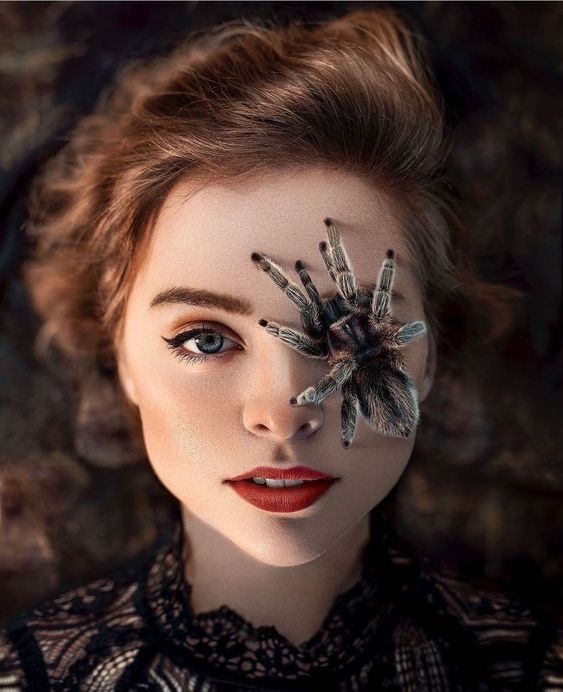 5. Pluto is the badass who stares death in the face and doesn’t even blink. This deity of the underworld doesn’t flinch, doesn’t quiver, doesn’t cower in the presence of fear or darkness. Why would he? He is darkness. He’s the one holding the scythe, after all, the master of the inevitable, the one who knows that every ending is just a new beginning in disguise. When death is your domain, when you are the lord of all that’s feared and avoided, what’s left to be scared of? Pluto isn’t impressed by the theatrics of life. He’s seen it all, torn it down, rebuilt it, and done it again—cool as a cucumber, perched on his throne in the depths of the underworld.
5. Pluto is the badass who stares death in the face and doesn’t even blink. This deity of the underworld doesn’t flinch, doesn’t quiver, doesn’t cower in the presence of fear or darkness. Why would he? He is darkness. He’s the one holding the scythe, after all, the master of the inevitable, the one who knows that every ending is just a new beginning in disguise. When death is your domain, when you are the lord of all that’s feared and avoided, what’s left to be scared of? Pluto isn’t impressed by the theatrics of life. He’s seen it all, torn it down, rebuilt it, and done it again—cool as a cucumber, perched on his throne in the depths of the underworld.
There’s something about Pluto’s unflinching nature that’s both eerie and absolutely awe-inspiring. On the one hand, it’s creepy to think about someone who never blinks in the face of chaos, who doesn’t bat an eye at destruction or the gnashing teeth of fate. It’s like Pluto is the guy in the horror film who walks calmly through the burning house while everyone else is screaming and running for their lives. He’s the chill in the air when the lights go out, that sense of inevitability that lets you know it’s all going to end, but in the most natural, almost soothing way. That’s where the eeriness comes from—how can something so final, so absolute, be so calm?
But then there’s the other side—the sheer power of it. The absolute, bloody awesomeness of being unafraid of anything, because you’ve mastered the darkest, most feared aspect of existence. Imagine the freedom that comes with knowing there’s nothing left to lose. Pluto doesn’t just dwell in death; he owns it. And in doing so, he’s beyond fear. Fear, after all, is rooted in the unknown—the “what ifs,” the uncertainty of what comes next. But Pluto already knows what comes next. He’s seen it, lived it, orchestrated it. So why would he ever need to flinch?
In a way, there’s something almost divine in that lack of fear. It’s not the absence of feeling; it’s the ultimate acceptance of reality. Pluto’s unflinching nature isn’t because he doesn’t care—it’s because he understands on a level that we mortals can barely grasp. He knows that all of this—the chaos, the struggle, the pain, and even the triumphs—are temporary. They all end, eventually. So what’s the point in getting all riled up about it? In fact, that unflinching quality of Pluto is where his strength lies. The rest of us, we’re scrambling, panicking, doing whatever we can to avoid the inevitable. We’re dodging endings, clinging to the familiar, trying to escape the darkness, when really, it’s all coming for us anyway.
But Pluto? He’s already there, sitting in the dark, waiting patiently, knowing that when we arrive—whether we come kicking and screaming or quietly—we’ll have no choice but to face him. And there’s something liberating in that. Pluto strips away all the pretense, all the illusions we wrap ourselves in, and says, “Here’s the truth. Here’s the end. Now what are you going to do with it?”
Maybe the lesson we’re meant to take from Pluto is that we should face the darkest parts of life—our fears, our endings, our inevitable transformations—with the same calm, unflinching grace. Because at the end of the day, we’re all going to end up in Pluto’s domain, one way or another. And when you realize that, when you really accept that, there’s a strange freedom in it.
 6. Pluto is the heavyweight champion, ruler of the most terrifying and awe-inspiring forces known to humankind. When Pluto shows up, it doesn’t come bearing flowers and chocolates. It arrives with the force of an atomic bomb, reminding us that we’re all standing on a ticking time bomb, whether we realize it or not. The connection between Pluto’s discovery and the unleashing of atomic energy? Not a coincidence. When Pluto was officially sighted in 1930, humanity was on the verge of unlocking a power so immense, so destructive, that it redefined what it meant to wield real force.
6. Pluto is the heavyweight champion, ruler of the most terrifying and awe-inspiring forces known to humankind. When Pluto shows up, it doesn’t come bearing flowers and chocolates. It arrives with the force of an atomic bomb, reminding us that we’re all standing on a ticking time bomb, whether we realize it or not. The connection between Pluto’s discovery and the unleashing of atomic energy? Not a coincidence. When Pluto was officially sighted in 1930, humanity was on the verge of unlocking a power so immense, so destructive, that it redefined what it meant to wield real force.
Atomic bombs, weapons capable of wiping out entire cities in the blink of an eye—this was Pluto’s calling card. The ultimate symbol of how destruction and creation are inextricably linked. One minute, a thriving metropolis; the next, a mushroom cloud, and beneath it, the ashes of what used to be. And what’s truly terrifying is the sense of powerlessness. The realization that, in the grand scheme of things, we’re all pretty small, aren’t we? Whether it’s the forces of Pluto or the earthly forces of society, politics, and war, there’s something unnerving about knowing that our lives could be upended in an instant by someone else’s destructive impulse. It’s the helplessness of living in a world where these immense powers exist, often beyond our control, and all we can do is hope that the countdown never reaches zero.
On a personal level, Pluto embodies that same level of destruction. It’s the part of you that says, “Screw it, I’m done,” when you’ve been pushed too far. The kind of self-destruction that’s almost liberating, in a perverse way. It’s like hitting rock bottom and realizing that when there’s nothing left to lose, there’s a weird freedom in the rubble. Pluto doesn’t shy away from that. In fact, it’s kind of Pluto’s whole gig—to tear everything down, rip out the foundations, and leave nothing but dust and silence. And yet, from that devastation, there’s always the potential for something new to emerge.
But when you scale that up—when you think about that kind of power on a societal or global level—yeah, it’s beyond frightening. The atomic bomb was just the beginning. These are the tools that Pluto has handed us, and humanity, in all its wisdom and folly, now possesses the capability to end it all in one fell swoop. That’s the true horror, isn’t it? The idea that someone, somewhere, could press a button and send us all spiraling into oblivion. It’s the ultimate form of power—complete and total destruction.
And yet, here we are, #fightingforsurvival, grappling with this existential tension between knowing we live on a knife’s edge and trying to go about our day-to-day lives as if we aren’t constantly teetering on the brink of some catastrophic meltdown. The human condition, right? We’re fragile creatures, but we’ve somehow gained access to powers that should be far beyond our capacity to manage. That’s Pluto for you—giving us the keys to the underworld and watching to see what we’ll do with them.
What’s interesting, though, is that Pluto’s power isn’t just about destruction. It’s about transformation. You can blow everything to smithereens, but from the ashes, something new can always emerge. It’s a death and rebirth cycle. Destruction doesn’t have to be the end of the story; it can be the beginning of something entirely different. Pluto doesn’t just kill—it regenerates. It forces you to look at the wreckage and decide, “What now? What will I build from this?”
But when you’re caught in that terrifying feeling of powerlessness, it’s hard to focus on the potential for rebirth. All you can see is the mushroom cloud on the horizon, the sense that someone else holds the reins, and that survival is a matter of luck, not choice. It’s primal, this fear. It’s the reason we have nightmares about apocalyptic scenarios, about losing control, about being swallowed by forces bigger than ourselves.
And yet, despite the terror, there’s something in us that keeps fighting, isn’t there? We don’t just give up and wait for the world to end. We keep going, even knowing that these immense powers exist. Maybe that’s Pluto’s gift in disguise—the knowledge that while destruction is always a possibility, so is survival. So is transformation. Even in the face of society’s ticking time bombs, we find ways to adapt, to rebuild, to keep moving forward.
So, yeah, Pluto holds the most powerful energy mankind has ever known—on a personal level and on a global scale. It’s frightening, sure. But it’s also the reason we’re still here, still pushing through, still rising from the ashes. Because Pluto, in all its dark, unyielding power, reminds us that while we may not be able to control everything, we can always choose how to face the destruction. And in that choice, there’s a kind of power all its own.
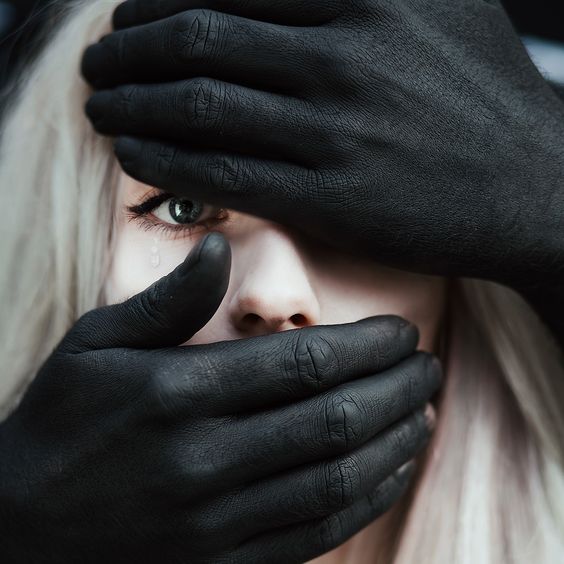 7. Pluto is the ruler of the hidden, the unspeakable, the things we fear so deeply that we don’t just bury them, we try to entomb them in the farthest, darkest corners of our psyche. It’s the stuff we shove under the bed and lock in the closet, hoping the door never creaks open, hoping no one ever finds out what we’re really afraid of. But here’s the thing: Pluto, in its sneaky, relentless way, is always hovering there, whispering from the shadows, reminding us that what we bury doesn’t stay buried for long. It finds its way to the surface eventually.
7. Pluto is the ruler of the hidden, the unspeakable, the things we fear so deeply that we don’t just bury them, we try to entomb them in the farthest, darkest corners of our psyche. It’s the stuff we shove under the bed and lock in the closet, hoping the door never creaks open, hoping no one ever finds out what we’re really afraid of. But here’s the thing: Pluto, in its sneaky, relentless way, is always hovering there, whispering from the shadows, reminding us that what we bury doesn’t stay buried for long. It finds its way to the surface eventually.
And the irony of it all? The more we refuse to talk about these fears, the more power they seem to have over us. You know those things you “just won’t talk about”? Pluto loves that. That’s its playground, the unspoken, the repressed, the fear that’s so vulnerable, that you’ve convinced yourself that by not naming it, you can control it. But Pluto what we refuse to confront, it digs up, like a hound sniffing out buried bones, forcing us to acknowledge the things we’d rather pretend don’t exist.
And yet, I get it. Some things feel too deep, too painful, too real to expose to the light. We build these walls around them, thinking that by locking them away, we can avoid the sting of them. But what happens when we do that? They start to grow in the dark, gaining strength, warping into something even scarier. Because those fears? They don’t just vanish. They fester. They lurk. And the less you talk about them, the more they gnaw away at the edges of your mind. The funny thing is, Pluto doesn’t ask us to parade these fears around in the open like a banner. No, it’s far more subtle than that. What Pluto wants is acknowledgment, not denial. It wants us to recognize that the very things we fear, the parts of ourselves we bury, are also the keys to our transformation. But confronting them? It’s like walking through a minefield, isn’t it? You don’t know what’s going to blow up, what’s going to tear through your defenses. So we tell ourselves, “Better to leave it unsaid, unspoken. Safer.”
But Pluto never leaves us alone for long. Those fears start to show up in other ways—maybe as anxiety, maybe as nightmares, maybe as that gnawing sense that something’s off, but you can’t quite put your finger on it. The things we try to bury have a funny way of worming their way back to the surface, even if we refuse to look them in the eye. And the truth is, burying them doesn’t make them disappear; it just makes them more potent, more insistent. What we resist persists.
So why don’t we talk about these fears? Well, that’s simple. We’re scared of what they might reveal about us. We’re afraid of being vulnerable, of exposing the parts of ourselves that don’t fit into the neat little boxes we present to the world. There are wounds that run too deep, pains that feel too raw, and to speak of them feels like inviting chaos into the carefully constructed order of our lives. But that chaos is already there, simmering beneath the surface. You can bury it, but it’s still alive, waiting for the right moment to erupt.
And I get it—some fears are just too heavy to carry out into the light. Maybe it feels safer to let them lie, undisturbed. But there’s a power in speaking the unspeakable, even if it’s just to yourself. There’s a liberation in acknowledging what you fear, even if you never share it with another soul. Because once you name it, once you admit that it’s there, its grip on you loosens a bit. You take back some of the power. But Pluto? It doesn’t mind if you don’t want to talk. It’ll sit there, in the shadows, patient as ever, waiting. Because in the end, Pluto always gets its way. It’ll keep sending those fears back to you in different forms until you acknowledge them. It’s relentless like that. It’s like the therapist you never asked for, but desperately need—always pushing you towards that uncomfortable but necessary reckoning.
So, while it’s tempting to keep things locked up, to refuse to talk about them, to hope that by not acknowledging the fear, it’ll disappear—Pluto knows better. It always does. And when you’re ready, it’ll be there, unflinching, holding up that mirror and saying, “It’s time to look at what you’ve been hiding.” But take heart—because while Pluto rules over fear, it also rules over transformation. And once you confront what you fear most, you find that it no longer has the same power over you. The monster isn’t quite as big as you thought. Maybe, just maybe, you find that you’re bigger than your fear.
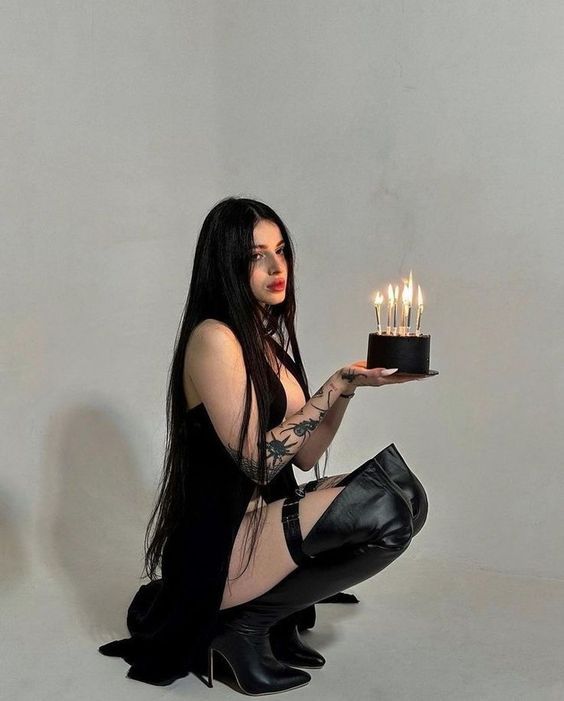 8. The fiery depths of Pluto’s realm—where the flames don’t just burn, they purify, transforming you from the inside out. It’s that searing heat that strips away the layers of all the toxic, rotting, emotional baggage you’ve been lugging around for years, forcing you to confront what no longer serves you. And yeah, when you think of burning in hell, it conjures images of torment, of being scorched by your own sins. But in Pluto’s underworld, that fire is not some eternal punishment—it’s a necessary purge, a bonfire for your soul. There’s something primal about fire. It’s destructive, but it’s also cleansing. People are traditionally burned after death, reduced to ashes that are scattered in the places they loved most. There’s something deeply symbolic in that, a final release of the physical form, returning it to the earth, while the spirit—purified and free—transcends. In Pluto’s world, that’s not just about literal death; it’s about spiritual rebirth. It’s about lighting a match to all the things you’ve outgrown, the grudges, the guilt, the heartbreak, the memories that haunt you like ghosts. And yes, it feels terrifying. Lighting a match to the past, to the people and the stories that shaped you? It’s Carrie White at prom levels of horror. You don’t know what will be left after the fire dies down.
8. The fiery depths of Pluto’s realm—where the flames don’t just burn, they purify, transforming you from the inside out. It’s that searing heat that strips away the layers of all the toxic, rotting, emotional baggage you’ve been lugging around for years, forcing you to confront what no longer serves you. And yeah, when you think of burning in hell, it conjures images of torment, of being scorched by your own sins. But in Pluto’s underworld, that fire is not some eternal punishment—it’s a necessary purge, a bonfire for your soul. There’s something primal about fire. It’s destructive, but it’s also cleansing. People are traditionally burned after death, reduced to ashes that are scattered in the places they loved most. There’s something deeply symbolic in that, a final release of the physical form, returning it to the earth, while the spirit—purified and free—transcends. In Pluto’s world, that’s not just about literal death; it’s about spiritual rebirth. It’s about lighting a match to all the things you’ve outgrown, the grudges, the guilt, the heartbreak, the memories that haunt you like ghosts. And yes, it feels terrifying. Lighting a match to the past, to the people and the stories that shaped you? It’s Carrie White at prom levels of horror. You don’t know what will be left after the fire dies down.
But you do know this: after everything burns, after the ashes settle, what remains is the untarnished truth of who you are. That’s the thing with Pluto—it’s not interested in half-measures or gentle transformations. It wants to burn you down to your very core, to strip away the illusions, the masks, and the emotional crutches. It wants to push you through the fire so you can emerge on the other side, not just as a survivor, but as something entirely new. The phoenix doesn’t rise from a mild singe; it rises from complete annihilation.
This is where the spiritual part comes in, the part your astrology textbooks hint at but rarely convey in full. Because while Pluto’s process of burning, purging, and reducing everything to ash is terrifying, it’s also deeply, profoundly spiritual. Fire, in many traditions, is a sacred element. It represents transformation, initiation, and the destruction of the old to make way for the new. When you burn bridges—whether it’s a relationship, an old version of yourself, or that ex-boyfriend who still looms in your mind like a bad dream—you’re not just causing destruction. You’re creating space. You’re letting go of what no longer fits, even if it once meant the world to you.
But let’s be honest—it’s hard to let go. Hard to strike that match, to set fire to something you’ve held onto for so long. There’s a fear in burning the past because once it’s gone, it’s gone. There’s no going back. And that’s where Pluto really digs in. This planet doesn’t deal in nostalgia or sentimentality. It’s not interested in preserving the past—it’s interested in burning it to the ground so you can move forward, unburdened by the weight of what’s already dead. It’s a death, but it’s also the prelude to rebirth.
Now, here’s where Pluto pulls its ultimate move: it shows you that sometimes, the only way to truly free yourself is through fire. Those sins, those emotional scars, those toxic memories? They won’t fade on their own. They have to be incinerated, reduced to nothing so you can start anew. And in that moment of burning, when everything seems to be falling apart, you’re not just losing—you’re being transformed. You’re being forced to confront the truth of who you are without all the old layers, and in that truth, you find your power. That’s the spiritual promise of Pluto: what doesn’t survive the flames wasn’t meant to come with you into your next chapter.
And then, from the ashes, the phoenix rises. Not as a symbol of some easy comeback, but as a testament to the fact that destruction and creation are two sides of the same coin. You can’t have one without the other. The fresh start, the new you, can only emerge when the old version has been burned away. So yes, it’s terrifying to light that match. It’s terrifying to confront the reality that some bridges need to be burned, some relationships need to end, and some parts of you need to die in order for you to move forward. But once you do—once you step into that Plutonic fire—you come out the other side not just cleansed, but reborn. That’s Pluto’s gift, even if it comes wrapped in flames and ashes. In the end, it’s the fire that sets you free. The only question is: are you ready to strike the match?



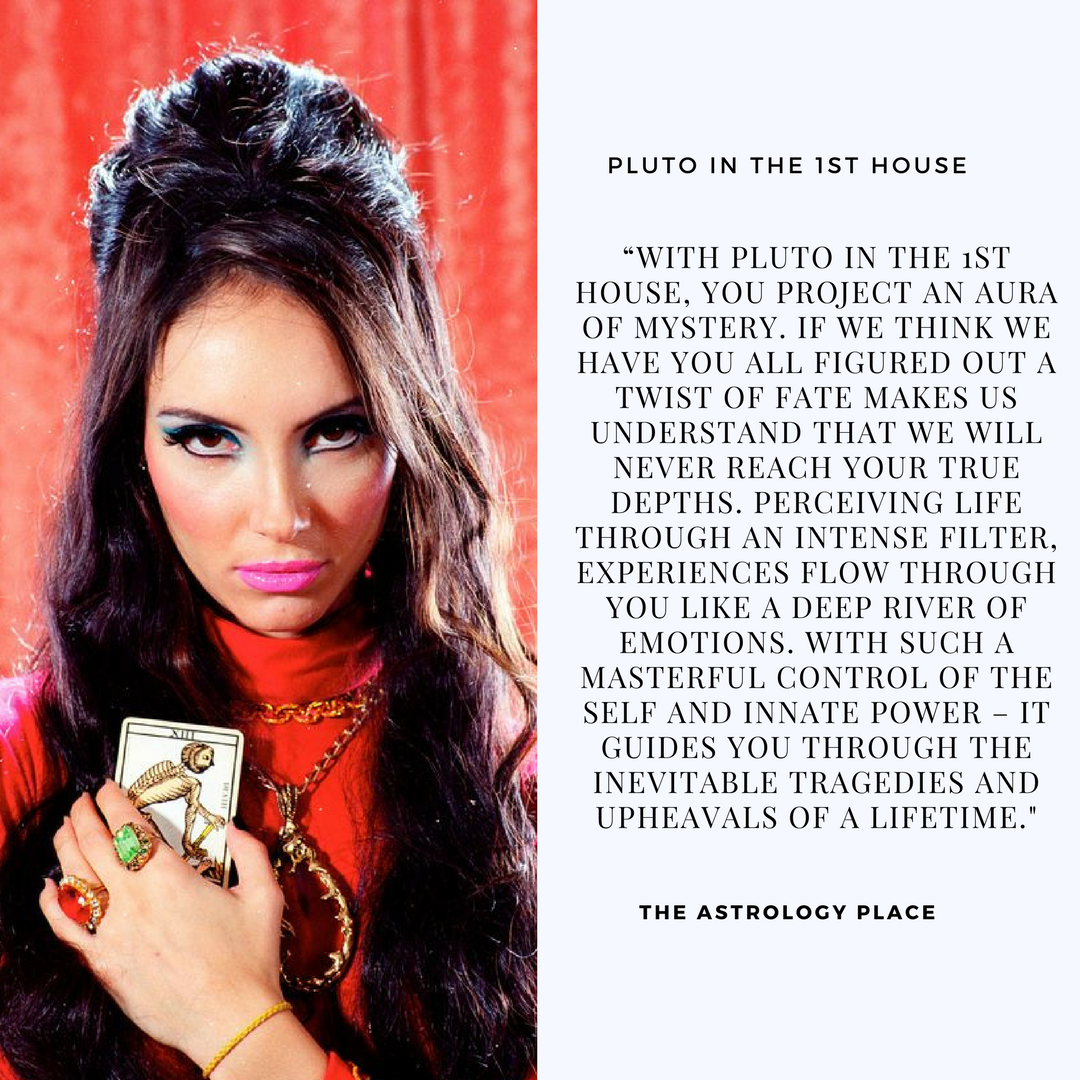

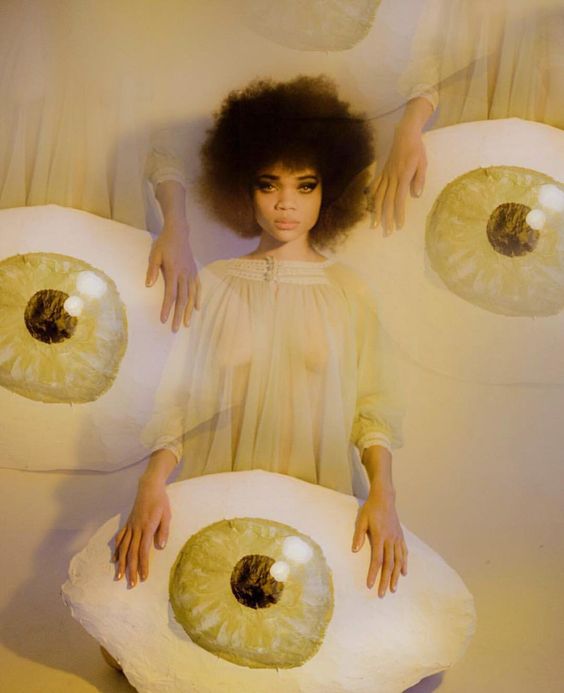


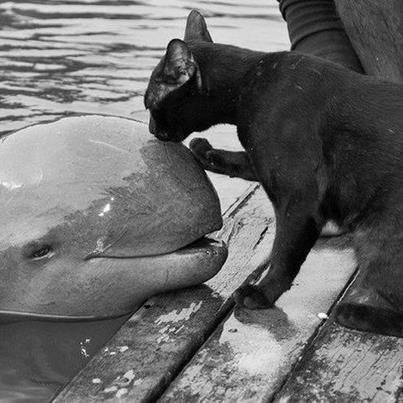
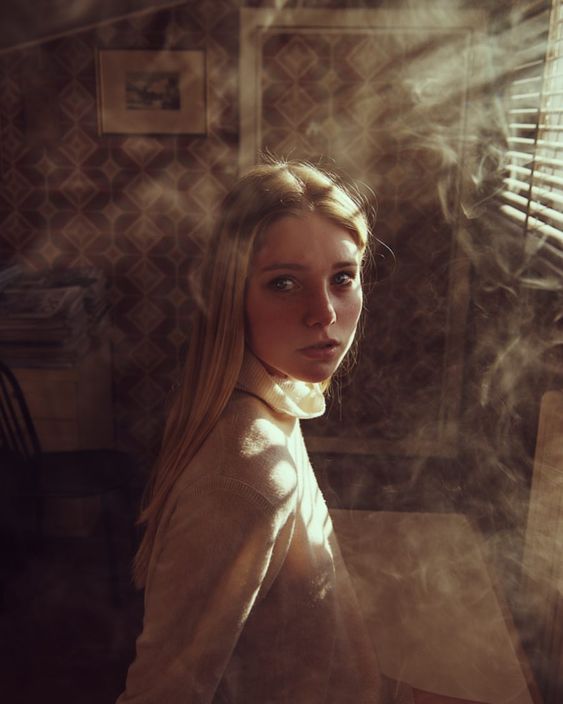




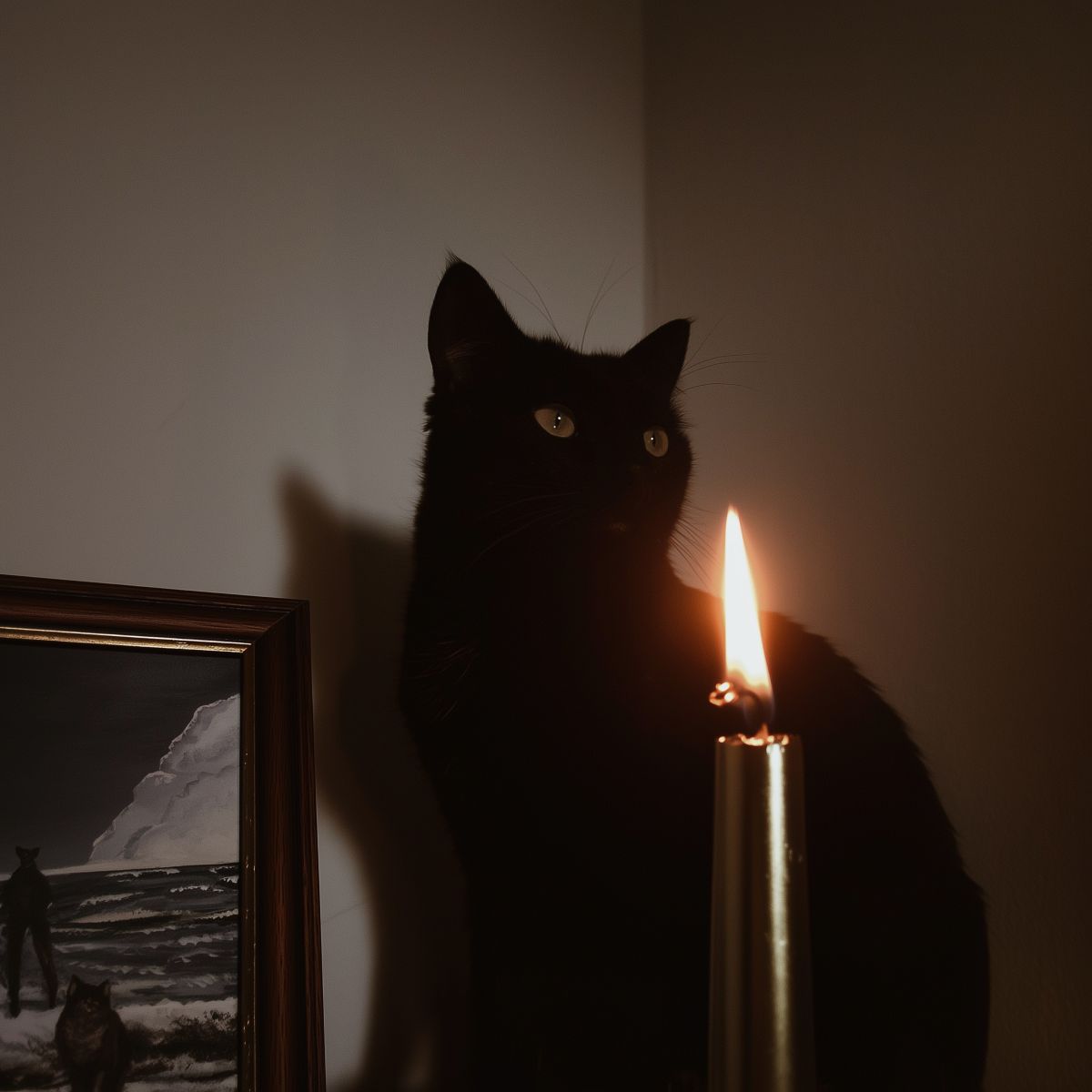


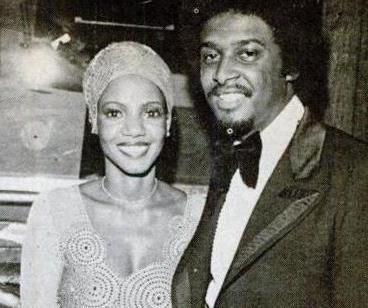
 Sun Square Pluto Synastry: You’ve Got That Power Over Me
Sun Square Pluto Synastry: You’ve Got That Power Over Me
 Moon Conjunct Pluto Synastry
Moon Conjunct Pluto Synastry
 Venus-Pluto Synastry: A Love So Powerful That It Might Just Kill Them
Venus-Pluto Synastry: A Love So Powerful That It Might Just Kill Them
 Scorpio’s Cold Withdrawal
Scorpio’s Cold Withdrawal
 Mars Square Pluto Natal Aspect: The Unbreakable Spirit
Mars Square Pluto Natal Aspect: The Unbreakable Spirit
 Reflections on a Past Venus-Pluto Synastry Aspect
Reflections on a Past Venus-Pluto Synastry Aspect
 Mars-Pluto Synastry: Something Quite Dark and Dangerous
Mars-Pluto Synastry: Something Quite Dark and Dangerous
 Mercury Conjunct Venus Synastry
Mercury Conjunct Venus Synastry
 Uranus Transits 8th the House: Rebirth from Chaos
Uranus Transits 8th the House: Rebirth from Chaos
 Venus Trine Mars Synastry
Venus Trine Mars Synastry
 Mars in Aquarius: Sex drive
Mars in Aquarius: Sex drive
 Venus Trine Pluto: Dark Desires
Venus Trine Pluto: Dark Desires
 Mars-Saturn Synastry: The Eternal Loop
Mars-Saturn Synastry: The Eternal Loop
 Composite Sun in the 8th House: Weather the Storm
Composite Sun in the 8th House: Weather the Storm
 Mars Conjunct Pluto Synastry
Mars Conjunct Pluto Synastry
 Sun Conjunct Pluto Synastry: Enlightening or Annihilating
Sun Conjunct Pluto Synastry: Enlightening or Annihilating
 Sun Square Pluto Natal Aspect: I Am Titanium
Sun Square Pluto Natal Aspect: I Am Titanium
 Moon Opposite Uranus Natal Aspect
Moon Opposite Uranus Natal Aspect
 The Watery Gardeners: Cancer, Scorpio, and Pisces
The Watery Gardeners: Cancer, Scorpio, and Pisces
 Sun in the 12th House: From Isolation to Illumination
Sun in the 12th House: From Isolation to Illumination